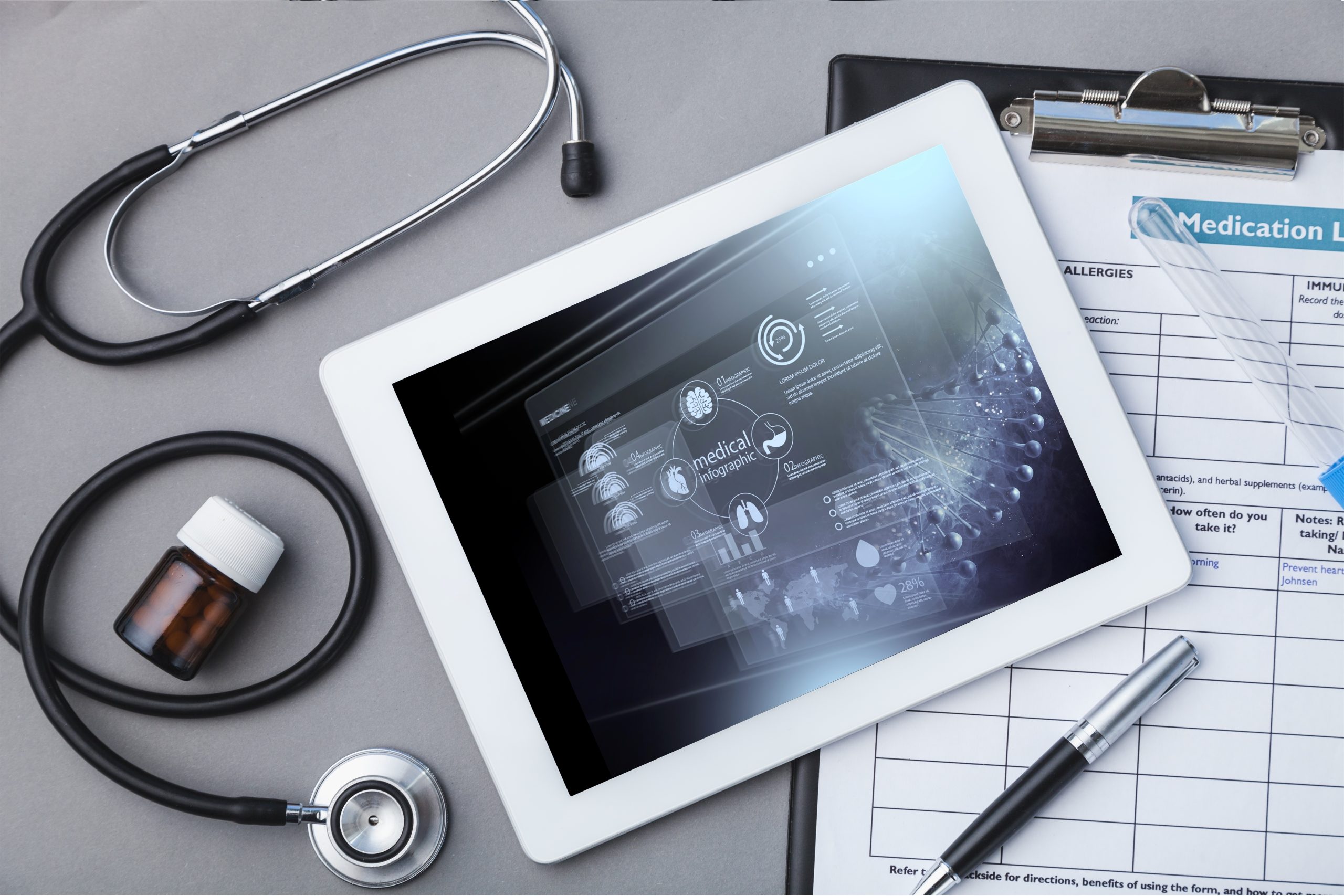EHR Implementation: Streamlining Data for Better Patient Care

For a long time, paper-based records were used by providers. This method of storing patient data proved to be ineffective as providers had to spend a large portion of their time sorting for the desired information. It resulted in loss of provider’s time and energy. EHRs helped solve this problem.
An EHR is a comprehensive, real-time collection of patient information that includes medical history, diagnoses, treatments, medications and test results. By digitizing medical records, EHRs facilitate seamless information exchange among healthcare providers, enabling them to make informed decisions. Thus, providers started adopting EHRs to avoid errors and waste of resources. In this article, we will highlight what is EHR implementation and the benefits of EHR implementation.
What is EHR Implementation?
An EHR implementation is the process of organising and carrying out the integration of EHR software in a healthcare organisation. By replacing traditional paper-based systems, EHRs aim to enhance patient care quality, safety and efficiency. It involves careful planning, vendor selection, staff training, and data migration to ensure a seamless transition from conventional methods to the electronic format.
Benefits of EHR Implementation
Cost-effective
An efficient EHR system helps improve operational efficiency and boost the practice’s bottom-line. EHR systems can significantly lower the costs of data, pulling charts, re-filing incorrectly filed records, and other expenses. Using the right EHR Software can guarantee a higher return on investment by better use of resources, achieving more precise clinical results, and providing better services.
Through the use of EHR, you may also improve insurance claim acceptance rates by removing errors, which will hasten the reimbursement process automatically. and clinics in enhancing patient engagement and service delivery. Healthcare providers may even be eligible for government financial incentives if they adopt certified EHR systems and achieve the relevant standards.
Improved Patient Care
One of the biggest advantages of EHR is easy accessibility to patient data. By enabling quick access to patient health records for more coordinated and effective care, this promotes higher quality care for patients. EHRs give doctors access to health-related statistics and analytics that help them to identify trends, forecast diagnoses, and make treatment recommendations. They can streamline clinical decision-making and time-consuming processes with the use of real-time reporting, clinical alerts, regular reminders, and medical information.
With the help of EHRs, patients can pre-fill intake forms and view all previous medical data, including lab and imaging results, medication information, diagnoses, and more. It helps make accessing follow-up care with necessary specialists easier and transmit electronic prescriptions to pharmacies. In conclusion, EHR systems can be used by patients and doctors to monitor the course of ongoing treatment, which can make preventive care easier. It ultimately boosts the practice’s operational effectiveness while maximising treatment efficacy, resulting in more favourable clinical outcomes, increased patient outcomes, and improved bottom-line.
Regulatory Compliance
Regulations are constantly changing in the world of healthcare. EHRs help health care providers comply with regulations for maintaining records and submitting reports. Having an EHR system in place makes it simpler for providers to comply with CMS’s Meaningful Use criteria. EHR systems also assist organisations in adhering to HIPAA rules pertaining to privacy and data protection by enhancing security measures including encryption and authentication methods.
Increased Data Security
Healthcare industry is one of the biggest targets of cyberattacks. Cloud Based Electronic Health Records systems help improve the security of patient data. IT administrators can also encrypt data and establish role-based access control (RBAC) to restrict access to it to only authorised users who possess a decryption key. EHRs can assist healthcare professionals in complying with privacy and security standards like the Health Insurance Portability and Accountability Act (HIPAA) by ensuring that patient data is protected. By making sure the information is correct, full, and consistent, it can preserve the integrity of patient data.
Patient Engagement
EHRs assist in enhancing patient-provider interaction and communication. EHRs provide access to both patients and providers ultimately leading to shared decision-making and personalized treatments. Patients become more interested and engaged in their health when they can access their medical information from the convenience of their own homes and devices. Patients are more in charge of controlling their treatment process as a result, which increases engagement.
Improved Workflows
When integrated with practice management system, EHRs allow medical professionals to diagnose patients correctly while also saving time. All patient medical data being integrated into a single platform can help customers have smooth clinical experiences and improve the efficacy of healthcare plans. EHR systems can automate most administrative duties, freeing up staff and healthcare professionals to concentrate on giving patients the best treatment possible and expanding their practises.
EHRs offer real-time insights into patient diagnoses and medical history data in addition to enhancing patient health, scheduling appointments and managing claims. Based on the patient’s existing medications and diagnosis, it can look for any potential drug-to-allergy interactions that might arise. It also has built-in templates that let healthcare professionals record typical patient needs or complaints. These templates can also be modified to meet the individual requirements of every doctor. EHR solutions unquestionably prioritise providing better services and high-quality patient care across the healthcare process.
Conclusion
EHRs are a necessity in this age. Not only do they improve access to patient data, they also help improve patient care, financial health of the practice, early intervention, patient-provider communication and much more. As the healthcare industry continues to evolve, the widespread adoption of EHRs becomes increasingly essential in enhancing patient outcomes, driving efficiency, and elevating the overall quality of healthcare services.




